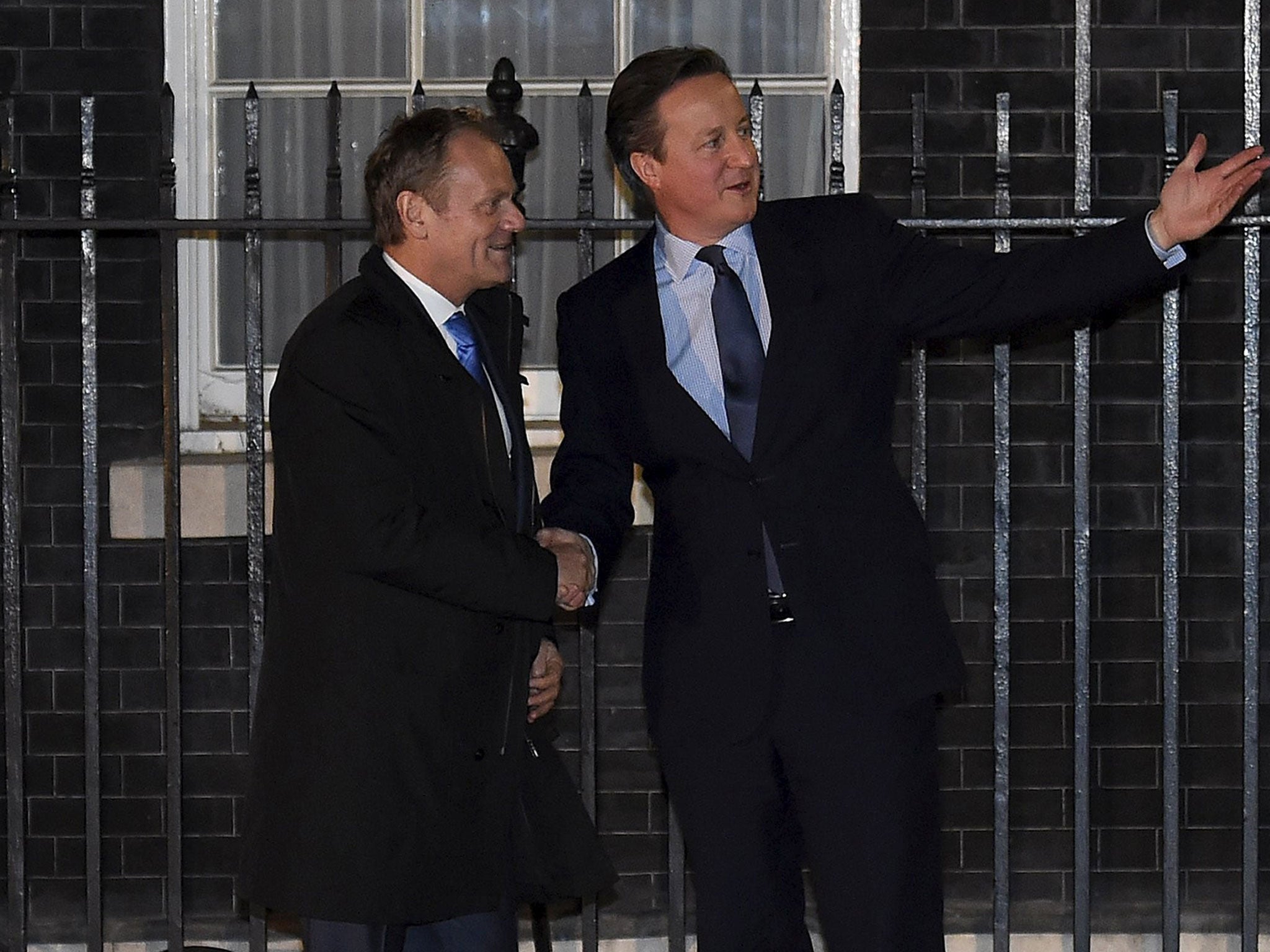EU unveils plan to meet David Cameron's renegotiation demands before referendum
European Council president Donald Tusk unveiled the plans

The President of the European Council has unveiled a draft deal with David Cameron to change Britain’s relationship with the European Union.
The Prime Minister has been locked in negotiation with Brussels and other EU states to change the way the UK relates to the pan-European bloc.
He had asked for restrictions on in-work benefits for EU migrants, protections for countries outside the Euro, an opt-out from “ever closer union” and reduced EU regulation.
European Council President Donald Tusk unveiled the text of the agreement late in the morning on Tuesday.
Mr Tusk and the European Commission were both involved in drawing up the deal.
The deal includes a so-called "emergency brake" on benefits for migrant workers to be imposed "immediately" after the UK votes to remain in the bloc.
The substance of the deal would be written into treaties when they were next revised for other purposes.
Mr Cameron will have to convince other EU nations at a summit later this month as well as his own MPs and the British people of the deal’s effectiveness.
After the deal is taken forward Mr Cameron will hold a referendum on European Union membership – expected before the end of 2017 but possibly as early as this summer.
Polls currently show a moderate lead for the “in” campaign.
Mr Cameron will face Labour leader Jeremy Corbyn in the House of Commons later today to discuss the deal.
Some eurosceptics have already branded the negotiations a “charade”.
Ukip leader Nigel Farage has said Mr Cameron’s goals will change nothing even if they are granted in full.
Join our commenting forum
Join thought-provoking conversations, follow other Independent readers and see their replies
Comments
Bookmark popover
Removed from bookmarks